Beyond Limits: Michael Strasser's 771 Solo Run
Austrian athlete Michael Strasser conquers seven Alpine peaks in seven countries in just over seven days, setting a new world record for solo, unsupported endurance.

Austrian athlete Michael Strasser conquers seven Alpine peaks in seven countries in just over seven days, setting a new world record for solo, unsupported endurance.
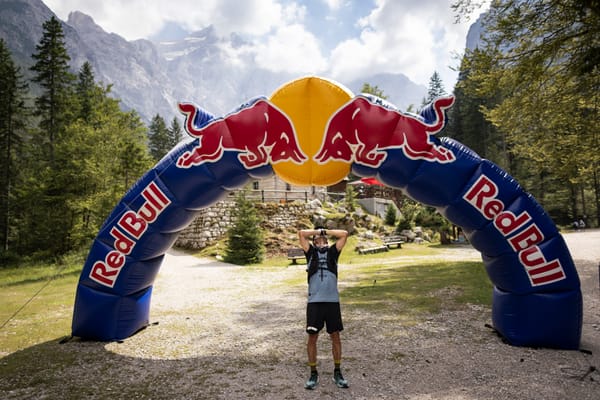
As the first rays of sunlight crept over the horizon on July 2, 2024, Michael Strasser stood at the foot of Mont Blanc, his heart racing with anticipation. The Austrian triathlete and long-distance cycling specialist was about to embark on a journey that would push him to the very limits of human endurance – the 771 Solo Run.
Strasser's goal was audacious: to conquer the seven highest mountains in seven Alpine countries non-stop and without support in just seven days. The challenge, aptly named "771," would see him tackle Mont Blanc (France), Gran Paradiso (Italy), Dufourspitze (Switzerland), Vorder Grauspitz (Liechtenstein), Zugspitze (Germany), Großglockner (Austria), and Triglav (Slovenia).
As he clipped into his pedals and began the first of many grueling climbs, he knew that the next week would test every fiber of his being. The numbers alone were staggering – 1,400 kilometers of distance, 34,000 meters of elevation gain, including 170 kilometers and 17,000 vertical meters on foot. But for Strasser, this challenge was about more than just statistics. It was a deeply personal quest to explore the boundaries of his own capabilities.
"I've been doing this sport for 18 years," Strasser reflected. "You can only endure such stresses and strains if you've prepared your body for these peaks for many years." Indeed, the 771 Solo Run was the culmination of nearly two decades of pushing himself to extremes.
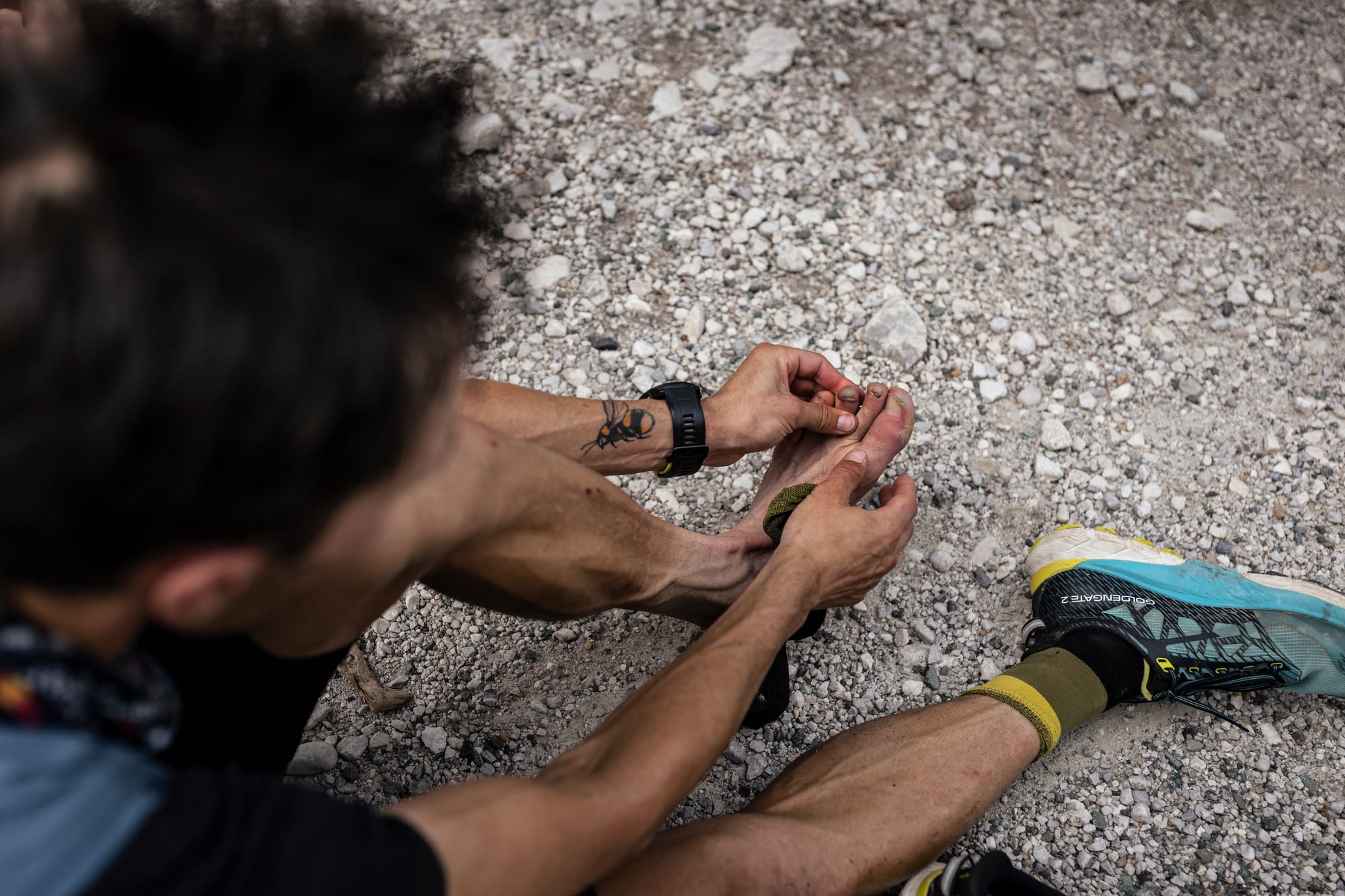
As he pedaled through picturesque Alpine villages and scaled treacherous mountain passes, Strasser's mind wandered to the countless hours of preparation that had led him to this moment. He thought of his family van tour in the summer of 2023, where he had "scouted" all the mountains and cycled numerous passes with his wife and young son Moritz in tow.
The weight of his gear was a constant reminder of the self-sufficiency required for this challenge. Unlike previous record attempts, Strasser had no external support. His converted Simplon PAVO IV bike, a completely revamped racing bike equipped with disc brakes and 28mm Schwalbe tires, was laden with essential mountain equipment. Down jacket, mountaineering boots, crampons, climbing harness, ice screws, ropes, carabiners, GPS tracker, GoPro, smartphone – all of this had to be carried over the Alpine passes by Strasser's own power.
As night fell on the first day, Strasser faced a crucial decision. He knew that sleep would be a luxury he could ill afford. "I knew that I would only break the record if I slept only minimally," he later explained. In those first few nights, he allowed himself the relative indulgence of three hours of rest. But as the days wore on and fatigue set in, even that meager allotment was reduced to just two hours, supplemented by brief 15-minute power naps during the day.
These moments of rest became precious opportunities for Strasser to reset his mental "computer," as he called it. The physical toll of the journey was immense, but it was the mental challenge that truly tested his resolve. "All the downhill running was extremely challenging," he recounted. "Not just for your hips and knees, but also for your head. You have to choose the right pace, the right balance of speed and safety."
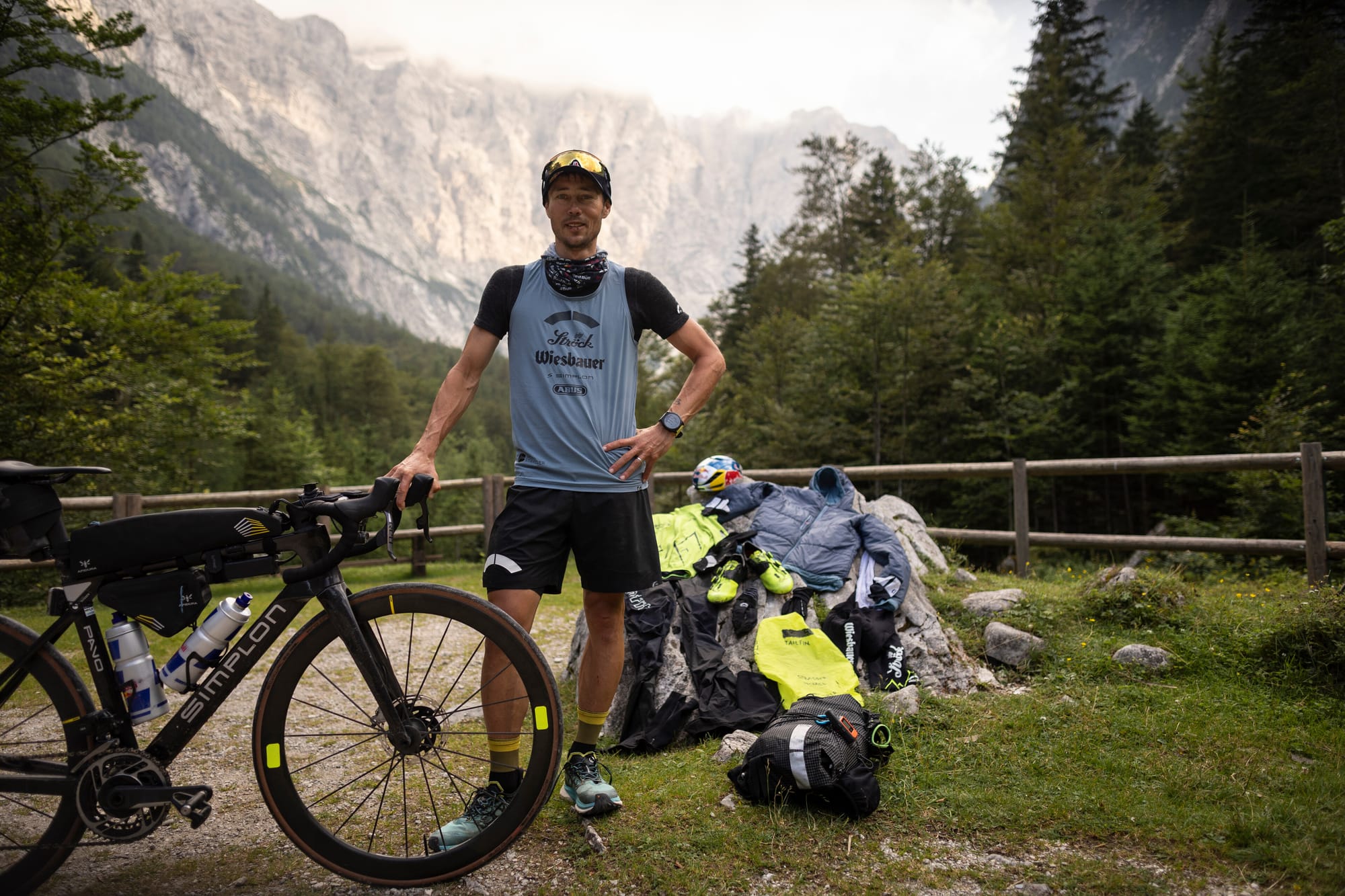
The specter of failure loomed large in Strasser's mind. A twisted ankle or a fall could spell the end of a project he had been working towards for two years. Each step, each pedal stroke, required unwavering focus and determination.
As he crossed borders and ticked off mountains, Strasser drew strength from his past achievements. He thought of his first world record in 2016, the Cairo2Cape bike solo that saw him cover 11,000 kilometers in just over 34 days. He recalled the grueling Ice2Ice project in 2018, where he cycled 23,000 kilometers from Alaska to Patagonia in 84 days. These experiences had forged his iron will and taught him valuable lessons about perseverance in the face of seemingly insurmountable challenges.
But the 771 Solo Run presented unique difficulties. The isolation was profound. With no support cars, no mountain partners, and not even the allowed cheering from friends and family, Strasser was truly alone with his thoughts. He had to be his own cheerleader, his own motivator, his own voice of reason when doubts crept in during the darkest hours of the night.
As he neared the halfway point of his journey, Strasser found himself in a moment of crisis. His body screamed for rest, his muscles ached with a deep, persistent pain. It was in this moment that he fell back on the mental strategies he had honed over years of extreme endurance events.
"I don't ride 300km in one day – I divide it in my head into three parts, so I only ride 100km three times," he had once explained. Now, faced with the daunting task of completing the second half of his journey, Strasser applied this principle with renewed vigor. He broke down the remaining distance into manageable chunks, focusing only on the next mountain, the next pass, the next kilometer.
As he pushed on, Strasser also drew strength from the knowledge that his journey was being followed by fans around the world. Thanks to GPS live tracking and his detailed posts on Strava, supporters could witness his progress in real-time. This transparency added an extra layer of accountability, spurring him on when his resolve wavered.
The final days of the challenge were a blur of pain, determination, and sheer force of will. Strasser's body was operating on the very edge of its capabilities, fueled by a combination of rigorous training, careful nutrition, and an indomitable spirit.
Finally, after 7 days, 10 hours, and 56 minutes of non-stop effort, Michael Strasser reached the foot of Triglav in Slovenia. As he dismounted his bike for the last time, the enormity of his achievement began to sink in. He had not only completed the 771 Solo Run but had set a new "Fastest Known Time" for the challenge in the "Self-Supported" category.
In the aftermath of his triumph, Strasser reflected on the deeper meanings of his journey. "This sport is a privilege," he mused. "Because I'm healthy. Because it's financially possible thanks to my partners." This sense of gratitude, combined with his unwavering dedication, had carried him through the darkest moments of his odyssey.
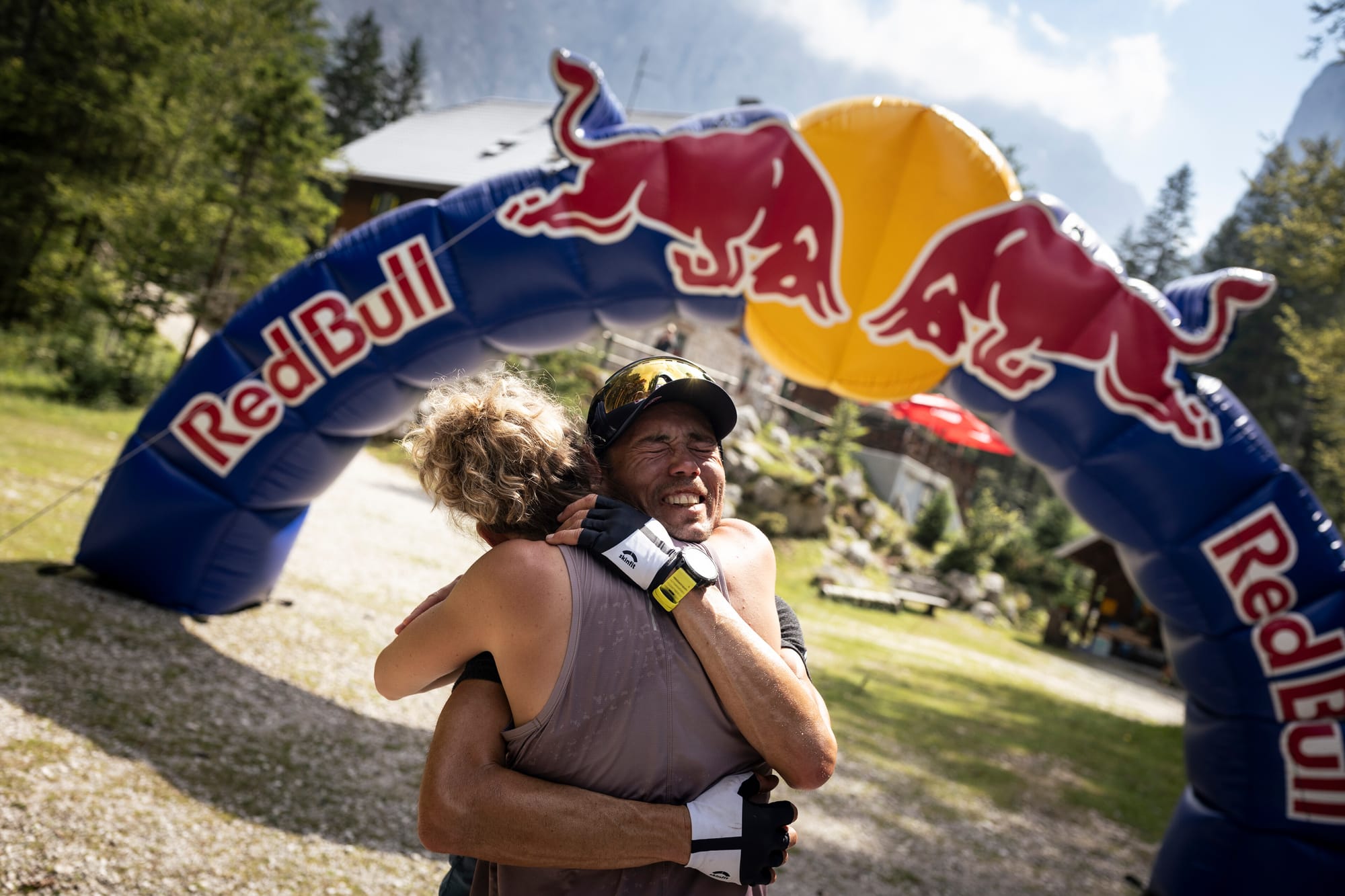
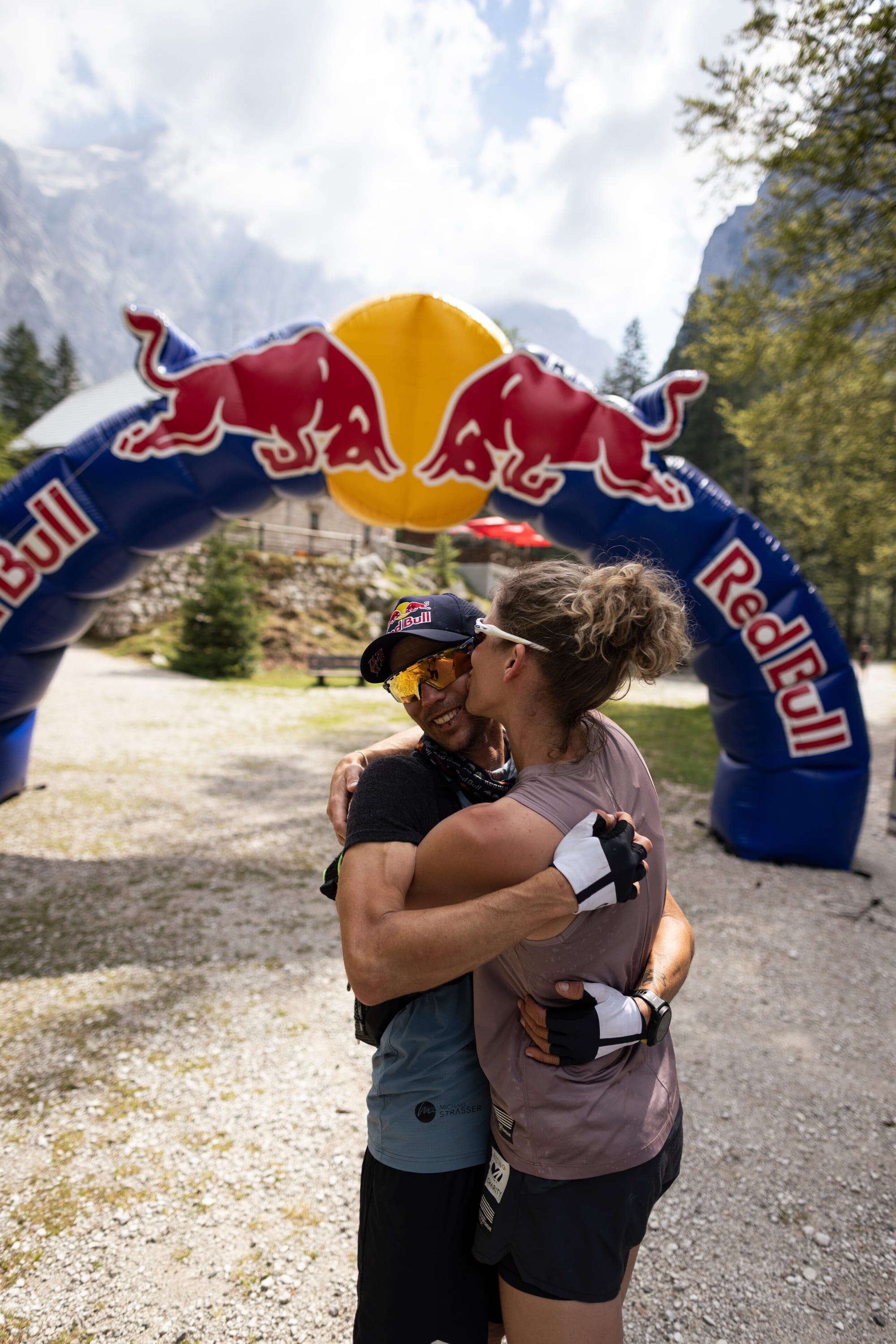
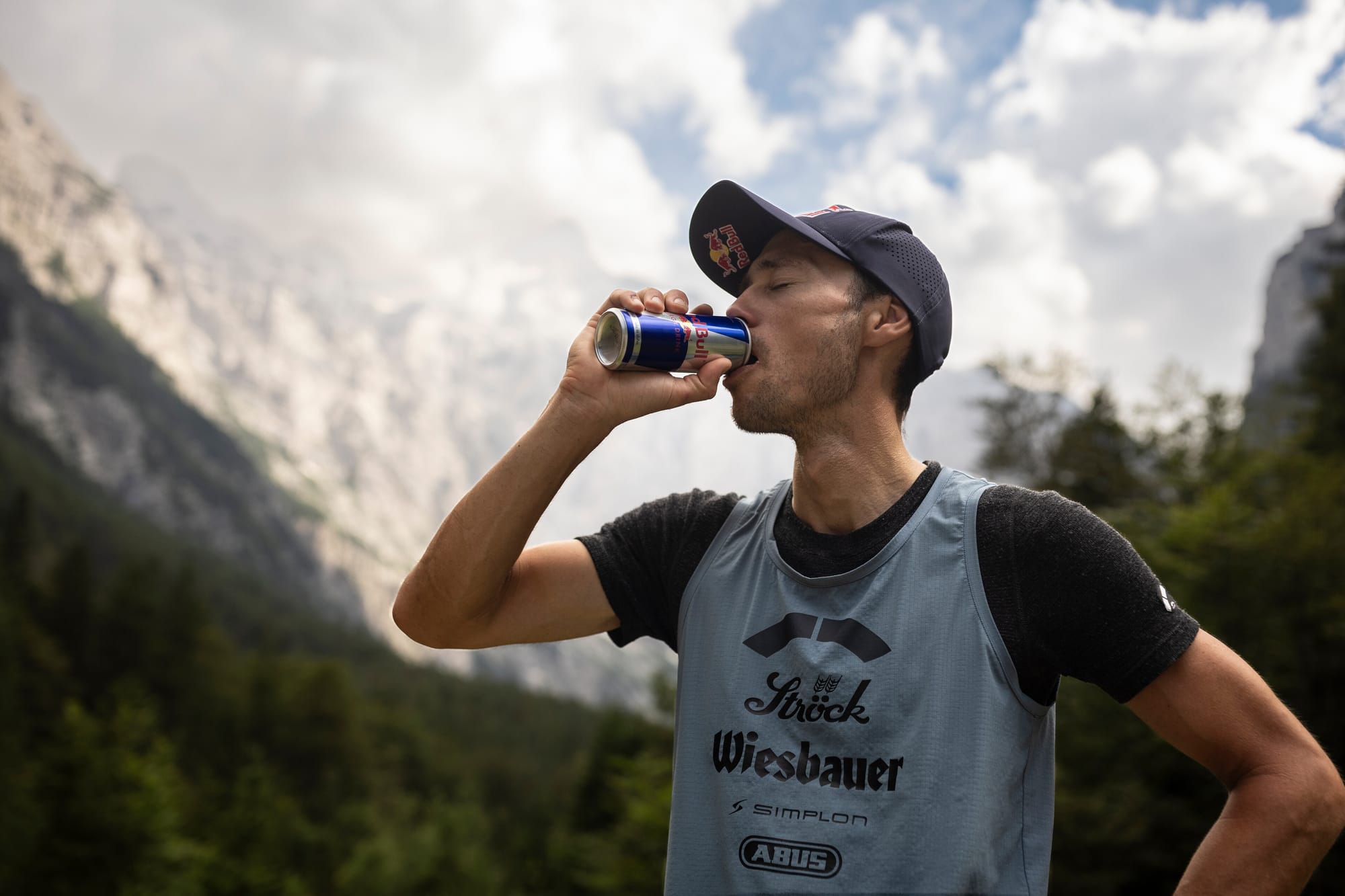
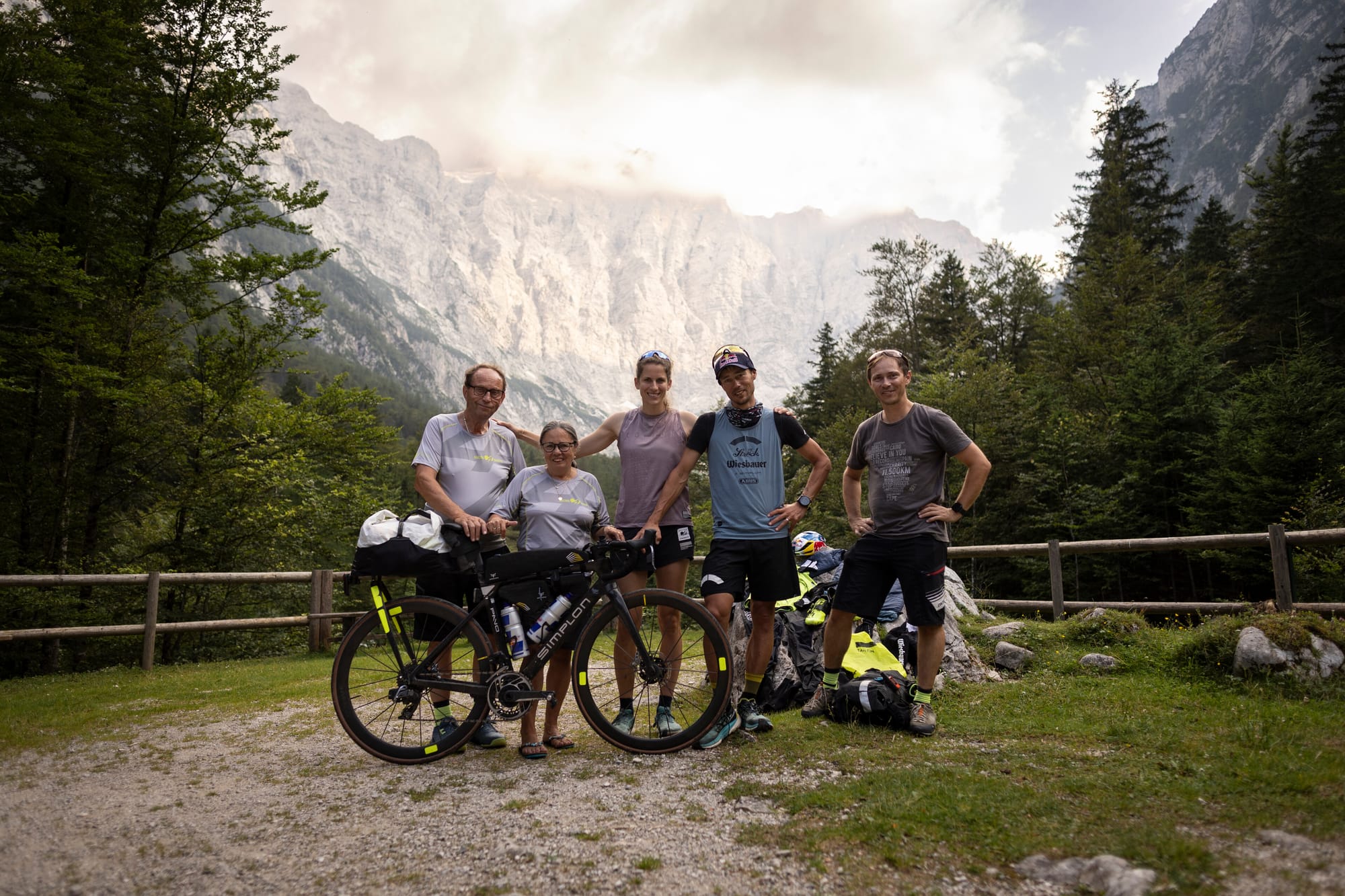
For Michael Strasser, the 771 Solo Run was more than just another world record. It was a profound journey of self-discovery, a week-long meditation on the nature of human endurance. As he looked back on the snow-capped peaks he had conquered, he knew that the real summit he had reached was within himself – a peak of personal achievement that would inspire him to seek out new challenges and continue pushing the boundaries of what is possible.
The 771 Solo Run also held a deeply personal significance for Strasser. It marked his return to long-distance solo cycling after a near-fatal accident in June 2022, when he was hit by a truck while riding. After 1.5 years of psychotherapy to overcome his fears, this challenge represented a mental victory.
As Strasser's incredible journey came to an end, he had not only set a new benchmark for Alpine endurance but had also proven to himself and the world that with determination and courage, one can overcome even the most daunting obstacles – whether they be towering mountain peaks or the shadows of past trauma.